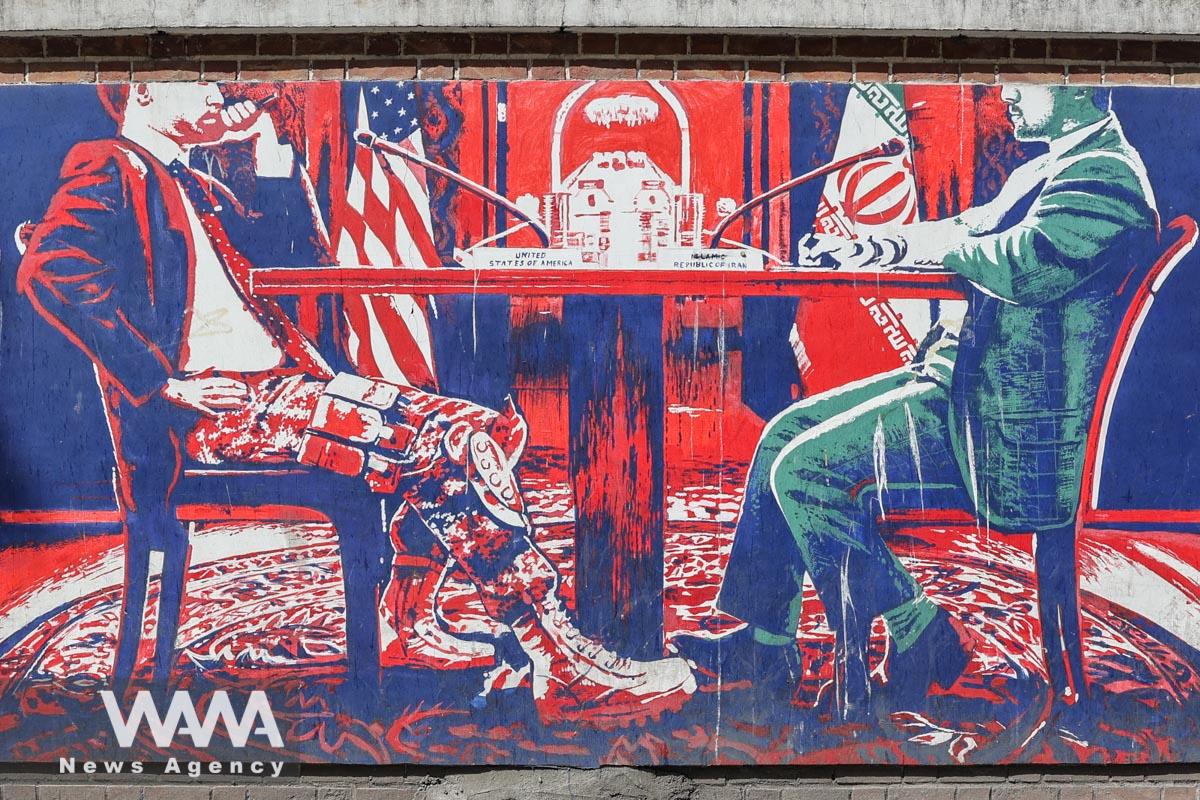America’s Double Approach in Negotiations
WANA (May 11) – How recent threats and excessive demands from U.S. officials have deepened Iran’s distrust toward Washington? Negotiation is often described as the common language of nations—a tool for resolving disputes and unlocking political and international deadlocks. But when negotiations are overshadowed by threats, sanctions, political pressure, and psychological warfare, they lose their essence and become instruments for imposing unilateral will.
Smiling with Sanctions: America’s Style of Diplomacy
The United States offers a clear example of this dual approach. For Washington, negotiation is not a pathway to mutual understanding but a tactic to enforce its own demands—disregarding the rights and positions of the other party. What the U.S. calls “negotiation” often amounts to a calculated effort to force the other side into submission through political, economic, and psychological pressure.
The U.S. behavior during the indirect talks in Oman makes this reality starkly evident. While claiming a willingness to engage, it sanctioned 81 oil tankers, 18 individuals, and 101 Iranian entities across just three rounds of talks. This follows the long-standing American strategy of “carrot and stick”—publicly advocating dialogue while simultaneously leveraging sanctions, threats, and external pressure to push its agenda.

Negotiation — or a Code Name for Disarmament?
WANA (May 10) – In a recent interview with Breitbart, Steve Witkoff, Donald Trump’s representative on Middle East affairs and indirect talks between Iran and the U.S., laid out a sweeping list of Washington’s demands — framed in a tone that sounded more like an ultimatum than a proposal. But this is no longer just […]
Diplomacy Held Hostage by Mistrust
America’s dual behavior has not only eroded diplomatic trust but has effectively held dialogue hostage. Looking at the record, it becomes clear that the real obstacle to sincere diplomacy is not Iran, but the U.S.—a country that, despite its rhetoric, consistently undermines negotiations through coercive tactics. Iran, by contrast, has repeatedly chosen the diplomatic path, even under intense pressure and sanctions.
Time and again, Iran has returned to the negotiating table, only to be met with more pressure from Washington. These repeated disappointments have left deep scars on the Iranian public’s perception, making optimism toward U.S. promises increasingly difficult. Iran’s approach to the U.S. has remained critical and cautious—shaped by lived experience that every American promise can swiftly turn into an unexpected reversal:
“We are neither overly optimistic nor pessimistic [about the Oman talks]. But we are very distrustful of the other side. We know who they are; we do not accept them.” – (April 2, 2025)

An anti-US mural is seen in a street in Tehran, Iran, April 8, 2025. Majid Asgaripour/WANA (West Asia News Agency)
When ‘Negotiation’ Is Mere Rhetoric
As long as threats and sanctions accompany diplomacy, what is labeled “negotiation” cannot be seen as genuine dialogue. Such a process is, in fact, a form of coercion, not constructive engagement. If the United States is truly seeking resolution, it must abandon the language of domination and adopt a sincere and balanced approach.
Iran has never abandoned the negotiating table. It has consistently participated in talks with reason, logic, and goodwill. It is the U.S. that, through its excessive demands and duplicity, has projected an untrustworthy image—professing dialogue while ramping up sanctions, issuing open and veiled threats, and breaching international commitments.
“Behind [America’s] diplomatic smiles lie hostility, spite, and a wicked core. We must open our eyes… and remain fully aware of who we’re dealing with.” – (January 29, 2025)
If this aggressive and diplomatically abnormal conduct by the U.S. continues, it will become increasingly clear to the world that American claims of dialogue are mere lip service. What Washington truly seeks is not mutual understanding but unilateral advantage, domination, and forced submission.
The outcome of today’s negotiations in #Oman showed that recent remarks by U.S. negotiator Steve Witkoff — calling for the dismantling of #Iran’s #nuclear capabilities — were merely for domestic consumption and meant to appease the Israelis. pic.twitter.com/Q2dg2esfdS
— WANA News Agency (@WANAIran) May 11, 2025












